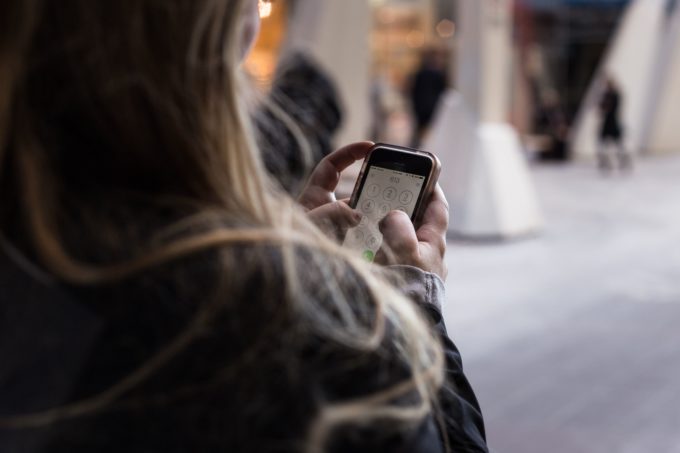
ACA International v. FCC: DC Circuit Partially Invalidates Robo-Call Regulations
By Hilary Hurd – Edited by JP Mohler
ACA International Et. Al v. Federal Communications Commission, No. 15-1211 (D.C. Cir. March. 16, 2018)
A metallic voice, an unknown number. The uninvited “robo-call” is as old, if not older, than the cell phone itself. For many, it’s an unavoidable annoyance we begrudgingly accept. But for the Association of Credit and Collection Professions (ACA), it’s been an enduring source of litigation and, now, a battle hard-won. After two years wait, the U.S. Court of Appeals for the District of Columbia Circuit decided ACA International Et. Al v. Federal Communications Commission earlier this month. Writing for the majority, Judge Srinivasan’s opinion partially denies, and partially grants, review of the FCC’s 2015 declaratory ruling clarifying its rules regarding the use of “automated dialing devices” to make “uninvited” calls. Evaluating the rules in light of the FCC’s authorizing statute, the 1991 Telephone Consumer Protection Act (TCPA), the Court has now set aside the Commission’s rules on which sorts of automated dialing equipment are subject to the TCPA’s restrictions on unconsented calls and conditions for consent.
Congress enacted the TCPA during the early tech boom when the use of automated dialing started to proliferate. The TCPA made it illegal to make “any call (other than a call for emergency purposes or made with prior express consent of the called party) using any automatic telephone dialing system [ATDS]….” unless the call was related to a debt owed to, or guaranteed by the U.S., or for an emergency, or consented to. It created a private right of action, permitting the begbrudged recipient to recover at least $500 in damages for each call that contravened the statute.
The first major issue decided by the Court concerned definitions of “capacity.” The original statute defined an “automatic dialing system” as equipment “capable” of both storing telephone numbers using a random, or sequential, number generator and actually dialing those numbers. Seeking to clarify which devices qualify for an ATDS, the FCC’s 2015 rule used a prospective definition of “capacity,” including those devices which had the potential to be transformed into ATDS by virtue of downloading an application. The Court set aside this definition by the agency on the grounds that it would “subject ordinary calls from any conventional smartphone to the act’s coverage” and that the statute did not necessitate such a “sweeping swoop.” Under the former rule, the Court said, a person who wishes to send an invitation for a social gathering, and gets someone’s number from third party, would ostensibly commit a violation of federal law. Acknowledging that “virtually any understanding of ‘capacity’ …contemplates some future functioning state, along with some modifying act to bring that state about,” the Court said that inquiry should focus on “how much is required to enable the device to function as an auto-dialer.”
The second issue regarded instances where a caller obtains a party’s consent and the consenting party’s wireless number is reassigned to a different person who has not provided consent. Under its 2015 order, the FCC said that in cases where a number has a changed, a caller enjoys a one-time safe-harbor for making an uninvited call to the previously consensual number. The Court inquired whether the Agency’s rule regarding the one-time safe harbor in such cases was sustainable - concluding that it was actually “arbitrary and capricious.” Because the FCC could have adopted a strict liability approach, but explicitly rejected it, the Court evaluated the rule in the context of the Commission’s own “reasonable reliance” standard. It said that it could see no clear rationale why, under that standard, a caller’s reasonable reliance would “necessarily cease to be reasonable once there has been a single, post-reassignment call.” It affirmed the 7th Circuit’s analysis in Soppet v. Enhanced Recovery Co. in that a “called party” does not necessarily need to mean the same thing as “intended recipient.”
On two additional issues, the Court found for the Commission. The first issue related to how a consenting party might go about revoking her consent. Petitioners had previously advocated to the Commission that they should be able to prescribe unilateral rules for how a consumer can revoke her consent and thus mitigate ambiguity regarding what consent means. The Commission had explicitly rejected that approach, and the Court sustained that rejection -- finding that such unilateral prescriptions would “materially impair the right of revocation.” The Court left open the possibility that callers might develop clearer guidelines regarding revocation by contract. The second issue related to the FCC’s exemption for heathcare-related calls and whether, in keeping with the overall purpose of the TCPA, they had been construed too narrowly. The Court sustained the Commission’s rule to tailor the exemption only to heathcare calls related to “exigency and public interest” -- finding no conflict with HIPPA, as charged by the petitioners.
The superficial parity of the Court’s decision aside, the overall consensus is that the ACA won big. Gibson Dunn Partner Helgi Walker remarked “This is a huge win that allows American businesses and consumers to communicate with each other…and will help to avoid increasingly onerous class-action liability.” Senator Ed Markey (D-MA), on the other hand, viewed the opinion as invalidating "core protections that give consumers reasonable control over their mobile devices." The legal merits of the Court’s decision aside, we will likely be hearing more metallic voices sometime soon.
Hilary Hurd is a 1L student at Harvard Law School.